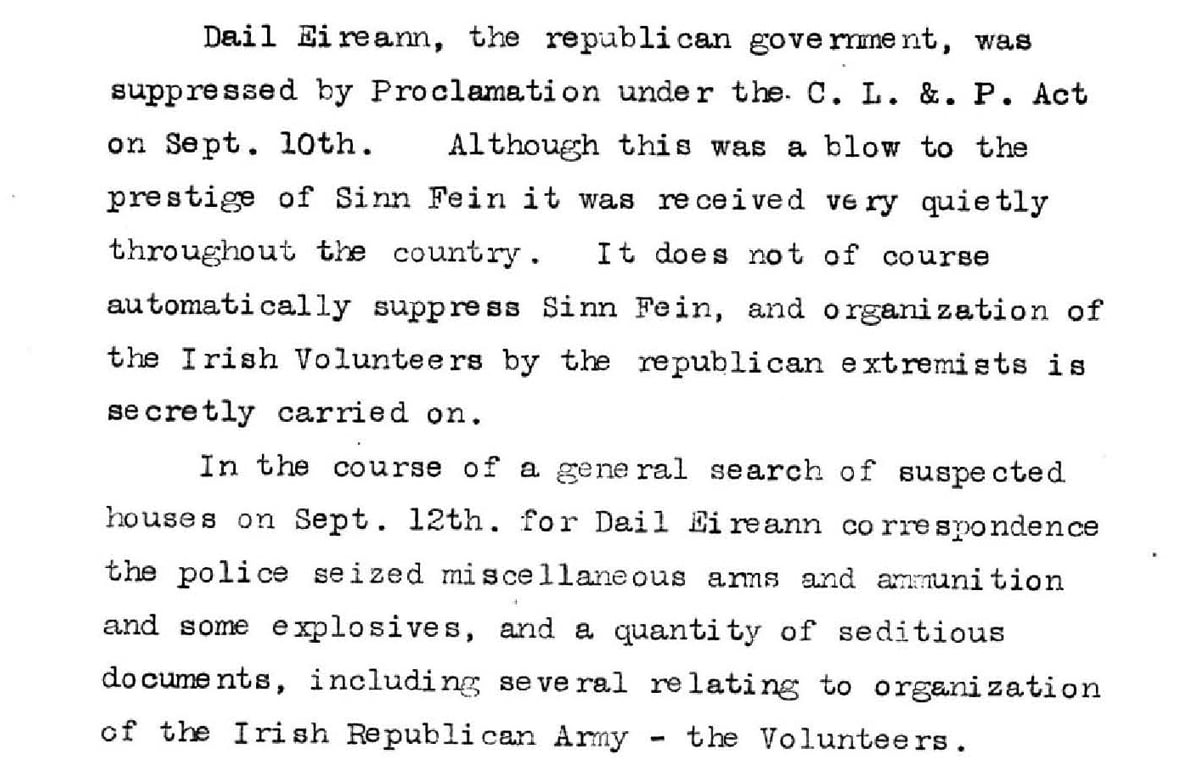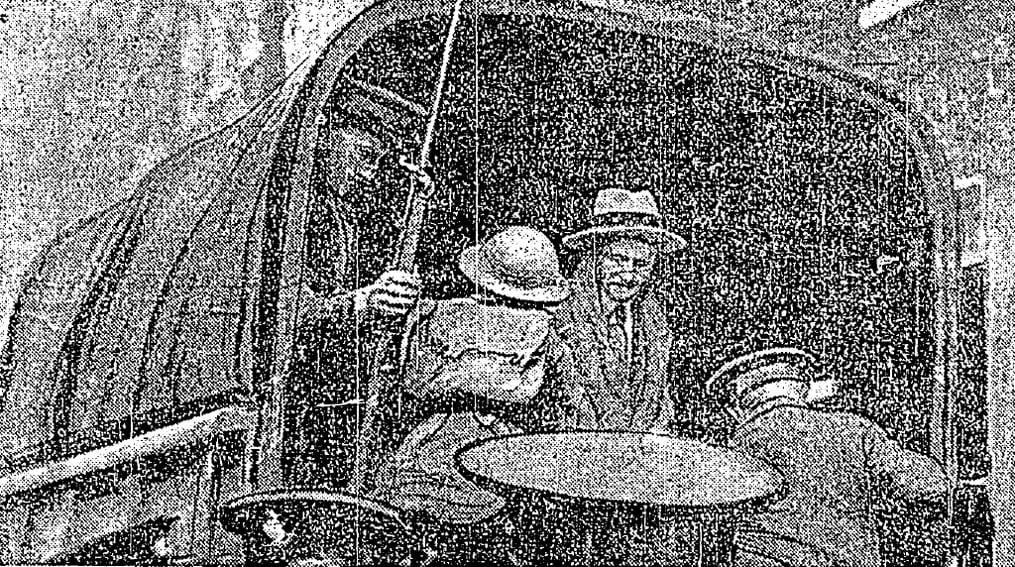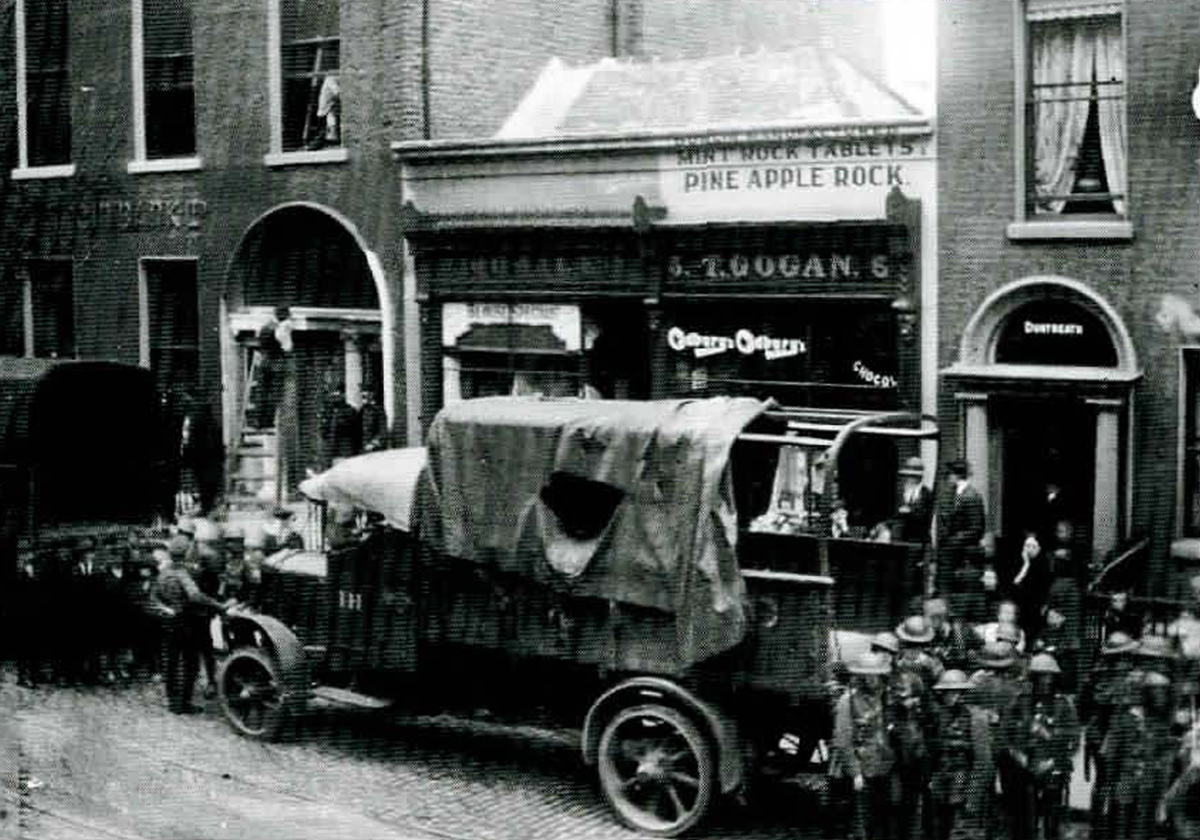Arrests and raids follow proclamation against Dáil Éireann
Dublin, 13 September 1919 - Dáil Éireann, the parliament established by Sinn Féin MPs in Dublin in January 1919, has been prohibited by the British authorities.
The move comes amidst a wave of repressive measures that has seen police raids, searches and seizures all across Ireland.
The suppression of Dáil Éireann was announced the Lord Lieutenant, Sir John French and came into effect on 10 September. Lord French declared that the ‘Association known by the name of The Dáil Éireann’ has been deemed to be ‘dangerous’ and has been added to a list of organisations - Sinn Féin, Irish Volunteers, Cumann na mBan and Gaelic League - that were banned in July 1918.
This proclamation applies to every county in Ireland as well as the county boroughs of Dublin, Belfast, Cork, Limerick, Derry and Waterford.

Inspector General’s Report from September 1919 noting that while the suppression of the Dáil is a blow to the ‘prestige’ of SF, it had been quietly received throughout the country. (Image: National Archives UK, CO 904 110)
Almost simultaneous with the banning of the Dáil a series of raids and searches were carried out on the houses of Sinn Féin members, including those of Count Plunkett, Ald. Thomas Kelly, Michael Staines, Joseph McGuinness, Joseph McGrath and William Cosgrave.
A two-hour search was also conducted of the party’s headquarters at 6 Harcourt Street in Dublin. Ernest Blythe and Patrick O’Keefe were on the premises at the time and were arrested and taken to Mountjoy Jail. Mr Blythe is Sinn Féin Director of Industry and Trades, MP for North Monaghan and editor of the Southern Star newspaper in Skibbereen, while Mr O’Keefe is general secretary of Sinn Féin and MP for North Cork.

Patrick O'Keefe after his arrest on Harcourt Street in Dublin (Image: Irish Independent, 13 September 1919)
Similar raids occurred in Belfast, where literature was discovered and removed but no arms were found. Seán McEntee, MP for South Monaghan, told the Belfast Telegraph that 12 policeman visited his home searching it from top to bottom and pulling up floorboards.
In Derry, a raid on a Sinn Féin hall is reported as having unearthed rifles, hand grenades, gelignite and ammunition.
A printing company in Omagh, which publishes a number of weekly newspapers, including the Ulster Herald, was searched and literature was seized. In Ballycastle, the houses of Ada McNeill and Gertrude Parry, cousins of Ronald McNeill and the late Roger Casement respectively, were also targeted for searches.
A similar pattern of police activity was witnessed across the Munster region.
The hardline approach being adopted by the Dublin Castle authorities has been welcomed in the British press. ‘The Government in Ireland is taking a firm hand with Sinn Féin at last’, observed the London Express. ‘Everyone who has at heart the welfare of Ireland will rejoice to see it.’
The Daily Chronicle has congratulated the Chief Secretary and Lord Lieutenant for taking ‘drastic measures to suppress violence and restore an atmosphere in which the voice of reason may be heard again’.
[Editor's note: This is an article from Century Ireland, a fortnightly online newspaper, written from the perspective of a journalist 100 years ago, based on news reports of the time.]





















